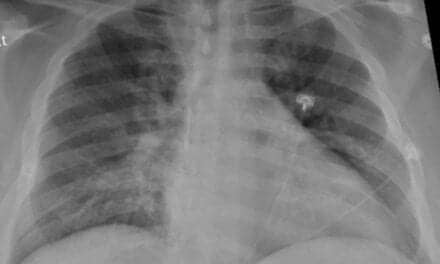Evolutionary simplification in the human larynx – the loss of vocal membranes and air sacs common to all nonhuman primates – enabled the increased acoustic complexity required by human speech, according to a new study. The findings suggest that the loss of complexity in human laryngeal anatomy represented a crucial evolutionary step toward enabling human spoken language.
Human vocal production is based on the same acoustic and physiological principles as vocal production in other terrestrial vertebrates – air from the lungs drives the oscillation of vocal folds in the larynx. However, human speech has several distinctive features. The oscillations of our vocal folds are far more stable, lacking the irregular oscillations and abrupt frequency transitions commonly seen in most other mammals. Combined with enhanced neural control, these attributes allow humans to create the wide array of sounds that enable speech and spoken language.
Yet identifying the evolutionary adaptations that gave rise to human speech has been challenging. Using magnetic resonance imaging (MRI) and computed tomography (CT), Takeshi Nishimura and colleagues examined the larynges from 29 genera and 44 species of primates and discovered that all nonhuman taxa possessed a vocal membrane that is wholly absent in humans.
After observing the activity of this membrane during primate vocalizations, Nishimura et al. developed anatomical and phonal models to compare the acoustic effects of vibration of this membrane. This vocal membrane – specifically its evolutionary loss – resulted in humans’ stable vocal source and enables the ability to produce the diverse and harmonic-rich sounds that characterize human speech.
Their study is published in the journal Science.
“What makes this study especially noteworthy is that the authors conclude that the human larynx differs from that of extant nonhuman primates in that it has become simpler or less complex with the loss of the membrane,” writes Harold Gouzoules in a related Perspective.
[Source(s): American Association for the Advancement of Science, EurekAlert]




